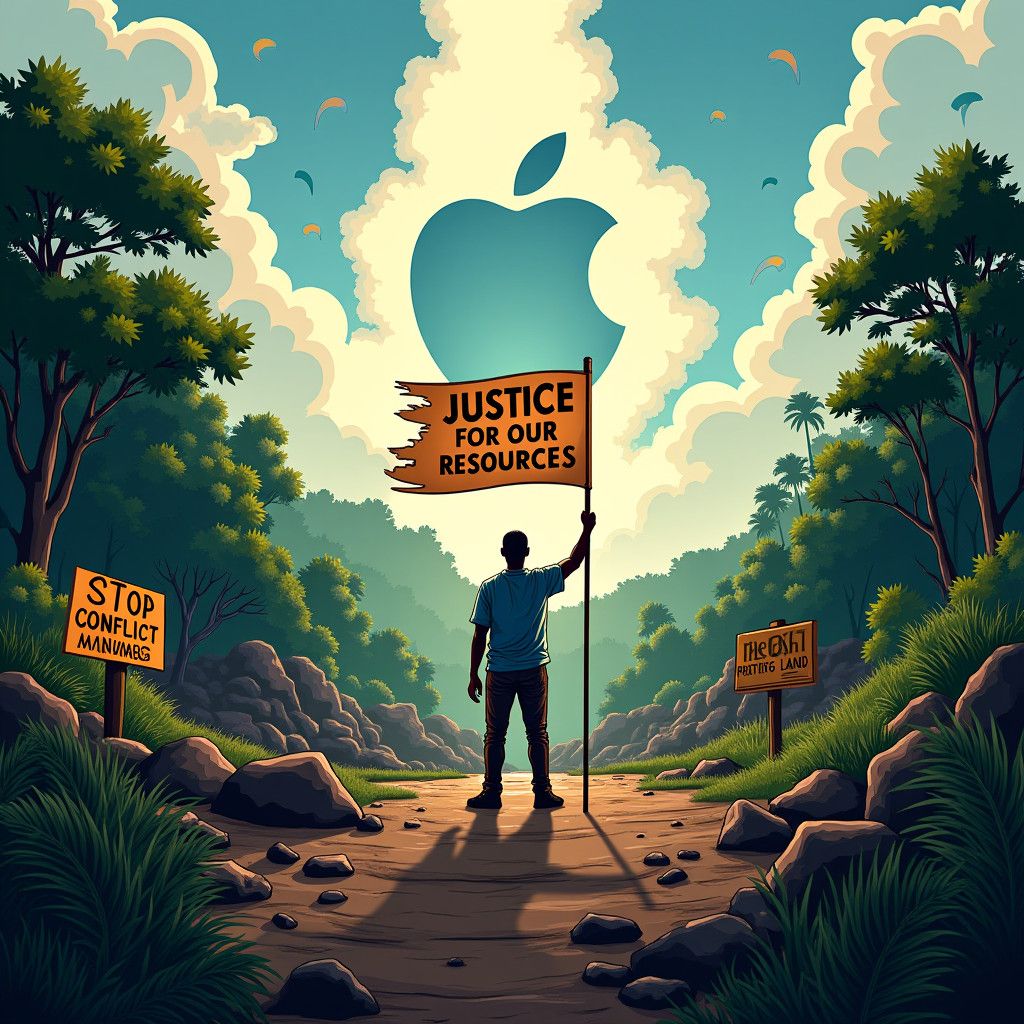In a significant development, the Democratic Republic of Congo (DRC) has filed a lawsuit against Apple subsidiaries, alleging the use of conflict minerals in their products. This legal action not only shines a spotlight on the ethical sourcing practices of one of the world’s largest tech companies but also raises critical questions about corporate responsibility and the implications for global supply chains.
The DRC, rich in minerals essential for modern technology, including coltan, tin, tungsten, and gold, has long been plagued by conflict and human rights abuses associated with mineral extraction. Reports indicate that armed groups have exploited natural resources in the region, fueling violence and instability. As a result, mining in this region has become synonymous with unethical practices, particularly in light of the violence and exploitation linked to conflict minerals.
Apple has positioned itself as a leader in ethical sourcing, claiming to prioritize transparency and responsibility in its supply chains. However, the DRC’s lawsuit challenges these assertions, alleging that Apple’s subsidiaries knowingly sourced minerals from mines controlled by armed groups. These mines are reported to be linked with human rights abuses, contributing to the cycle of violence in the region.
For context, consider the case of a landmark report published by the United Nations, which detailed how various multinational corporations, including tech giants, were indirectly financing conflict in the DRC through their supply chains. This report led to increased scrutiny over the procurement of minerals and prompted legislative actions in various countries, including the United States, which enacted laws requiring companies to disclose the sources of their conflict minerals.
The DRC’s legal challenge poses a significant risk to Apple’s brand reputation and could lead to regulatory repercussions. In addition to potential financial liabilities, the lawsuit may compel Apple to re-evaluate its sourcing practices and enhance transparency in its supply chain management. This could involve greater oversight of suppliers, increased investments in ethical mining initiatives, and more robust auditing processes.
Responses from Apple regarding the allegations have been vague, emphasizing their commitment to ethical sourcing while refraining from addressing the specific claims made by the DRC. This lack of clarity could further inflame public opinion against the company, particularly as consumers become increasingly concerned about the ethical implications of their purchases.
Moreover, the lawsuit may inspire similar actions from other countries or organizations, fostering a broader movement towards accountability in corporate supply chains. Activist groups have long argued that companies must take responsibility for the impact of their operations on human rights and the environment. The DRC’s case serves as a considerable wake-up call for corporations operating in regions with fraught conditions.
As the case unfolds, observers will be keenly watching the outcomes, not just for Apple but for the tech industry as a whole. A ruling against Apple could set a precedent that compels other companies to reassess their supply chains and prioritize ethical sourcing practices more rigorously. It may also galvanize consumers to demand greater transparency and responsibility from corporations regarding the origins of their products.
Additionally, this legal battle underscores the importance of sustainable practices and corporate social responsibility within the context of global business. Consumers are increasingly aligning their purchasing decisions with their values, favoring companies that exhibit accountability and commitment to ethical standards. The impact of such actions extends beyond financial implications; they can significantly influence brand loyalty and consumer trust.
In conclusion, the lawsuit launched by the Democratic Republic of Congo against Apple subsidiaries is not merely a legal dispute; it is a critical examination of corporate ethics in the tech industry. As the case progresses, it may well define the future landscape of ethical sourcing and corporate accountability, representing a pivotal moment for companies navigating the complexities of global supply chains. The stakes are high, and the outcomes may reverberate through industries far beyond the realm of technology.












